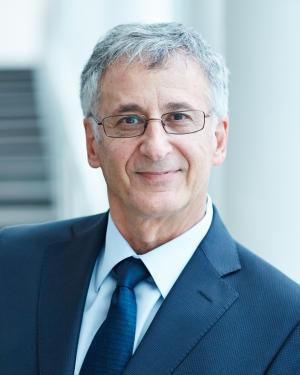Thank you for visiting the Human Physiology Lab.
Members of this research unit are interested in the adaptive responses of human physiology to exercise and physical training. We use pharmacological, nutritional, and environmental interventions to further our understanding of human capacities and limitations during a broad range of exercise modes, durations, and intensities.
The goal of our research is to discover and evaluate
- mechanisms of physiological adaptation to exercise
- the deviation of perceived fatigue from physiological strain during exercise
- ergogenic aids
The outcome of these studies will be used to develop and promulgate healthy interventions with the potential to enhance exercise and sports performance both acutely and in response to physical training.
Scientific Team
Faculty
Dr. Ira Jacobs (lab director)
Graduate Students
Liam O’Brien, James Juras, Vanessa Lin
Research assistants
Yasmeen Al-Kas
recent graduate Students
1. Ruderman, E. University of Toronto, Faculty of Kinesiology & Physical Education, Graduate Dept. of Exercise Sciences. M.Sc. Thesis: Effects of acute aerobic exercise on the pharmacokinetics of the anti-anxiety / anti-depressant drug sertraline. 2013.
2. Grosman-Rimon, L. University of Toronto, Faculty of Kinesiology & Physical Education, Graduate Dept. of Exercise Sciences Ph.D. Thesis: The effects of diminished pulsatility on arterial stiffness, exercise capacity and inflammatory markers in long-term continuous-flow left ventricular assist device (LVAD) recipients. 2014.
3. Farra, S. University of Toronto, Faculty of Kinesiology & Physical Education, Graduate Department of Exercise Sciences Ph.D. Thesis: Feed-forward regulation of self-selected exercise intensity in response to different rates of hypoxemia. 2016.
4. Mandic, I. University of Toronto, Faculty of Kinesiology & Physical Education, Graduate Department of Exercise Sciences Ph.D. Thesis: The effects of environmental and physical stress on energy expenditure, energy intake, and appetite. 2018.
5. McLaughlin, M. University of Toronto, Faculty of Kinesiology & Physical Education, Graduate Department of Kinesiology Exercise Sciences PhD Thesis: Physiological mediators of exercise pharmacokinetics. 2021.
6. O’Brien, Liam. University of Toronto, Faculty of Kinesiology & Physical Education, Graduate Department of Kinesiology MSc Thesis: Effects of local ischemic preconditioning on anaerobic upper body exercise performance. 2022.
Selected Publications
Farra, S., C. Kessler, J. Duffin, G.D. Wells, I. Jacobs. Clamping end-tidal carbon dioxide during graded exercise with control of inspired oxygen. Respir Physiol Neurobiol 231 :28-36, 2016. http://dx.doi.org/10.1016/j.resp.2016.05.013
Ahmed, M., I. Mandic, W. Lou, L. Goodman, I. Jacobs, M. L’Abbé. Validation of a tablet application for assessing dietary intakes compared with the measured food intake/food waste method in military personnel consuming field rations. Nutrients 9 (3), 200, 2017. http://dx.doi.org/10.3390/nu9030200
Farra, S., S. Cheung, S. Thomas, I. Jacobs. Rate dependent influence of arterial desaturation on self-selected exercise intensity during cycling. PLoS ONE 12(3), 2017. http://dx.doi.org/10.1371/journal.pone.0171119
McLaughlin, M. I. Jacobs. Exercise is medicine, but may interfere with medicine. Exerc Sport Sci Rev 45 (3) : 127-135, 2017. http://dx.doi.org/10.1249/JES.0000000000000111
Mandic, I., M. Ahmed, S. Rhind, L. Goodman, M. L’Abbe, I. Jacobs. The effects of exercise and ambient temperature on dietary intake, appetite sensation, and appetite regulating hormone concentrations. Nutrition & Metabolism 16: Article number: 29, 2019. https://doi.org/10.1186/s12986-019-0348-5
Gavel, E.H.,H. Logan-Sprenger, J. Good, I. Jacobs, S.Thomas. Menthol mouth rinsing and cycling performance in females under heat stress. International Journal of Sports Physiology and Performance 16: 1014-1020, 2020. https://doi.org/10.1123/ijspp.2020-0414
Ahmed, M., I. Mandic, W. Lou, L. Goodman, I. Jacobs, M.R. L’Abbé. Consumption of Canadian Armed Forces field rations compared with usual home dietary intakes and military dietary reference intakes. Military Medicine usab222, 12 June 2021. https://doi.org/10.1093/milmed/usab222
O’Brien, L., I. Jacobs. Methodological variations contributing to heterogenous responses to ischemic preconditioning. Front. Physiol. 12: Article 656980, April 2021. https://doi.org/10.3389/fphys.2021.656980
Divito, B., M. Mackenzie, I. Jacobs. The effects of L-citrulline on blood lactate removal kinetics following maximal-effort exercise,. Journal of Dietary Supplements, 2021. https://doi.org/10.1080/19390211.2021.1926392
O’Brien, I. Jacobs. Potential physiological responses contributing to the ergogenic effects of acute ischemic preconditioning: a narrative review. Frontiers in Physiology 13: 28 November 2022. https://doi.org/10.3389/fphys.2022.1051529
Di Vincenzo, J., L. O’Brien, I. Jacobs, M. Jawad, F. Ceban, S. Meshkat, H. Gill, A. Tabassum, L. Phan, S. Badulescu, J.D. Rosenblat, R. McIntyre, R.B. Mansur. Indirect calorimetry to measure metabolic rate and energy expenditure in psychiatric populations: a systematic review. Nutrients. 15(7), p.1686. https://doi.org/10.3390/nu15071686

